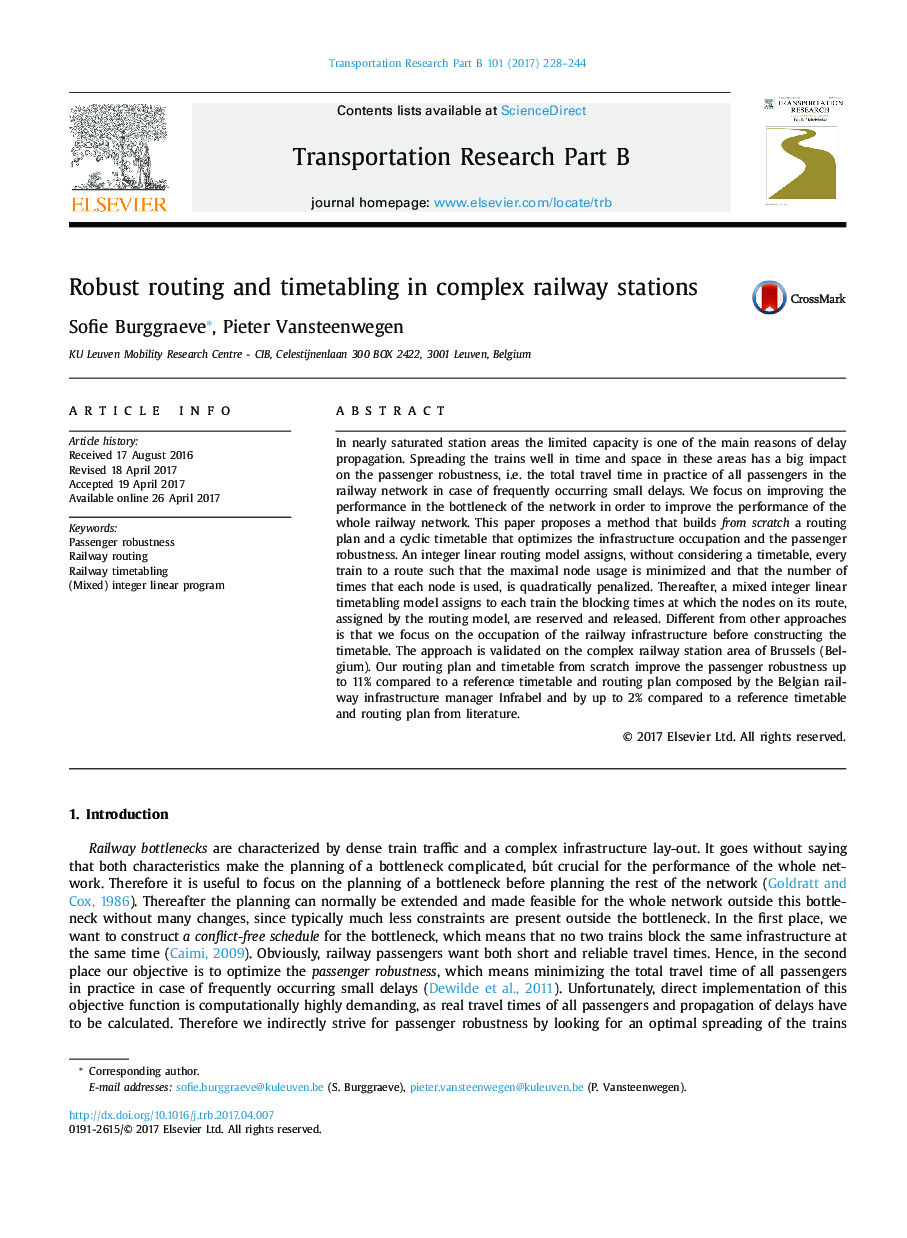| Article ID | Journal | Published Year | Pages | File Type |
|---|---|---|---|---|
| 5127018 | Transportation Research Part B: Methodological | 2017 | 17 Pages |
â¢An approach to construct a robust routing plan and timetable from scratch.â¢A detailed illustration of the approach on a small example case study.â¢A validation of the approach on Belgium's most complex railway bottleneck Brussels.â¢An 11% more passenger robust timetable and routing plan for Brussels.â¢Constraints to speed up routing and timetabling models in general.
In nearly saturated station areas the limited capacity is one of the main reasons of delay propagation. Spreading the trains well in time and space in these areas has a big impact on the passenger robustness, i.e. the total travel time in practice of all passengers in the railway network in case of frequently occurring small delays. We focus on improving the performance in the bottleneck of the network in order to improve the performance of the whole railway network. This paper proposes a method that builds from scratch a routing plan and a cyclic timetable that optimizes the infrastructure occupation and the passenger robustness. An integer linear routing model assigns, without considering a timetable, every train to a route such that the maximal node usage is minimized and that the number of times that each node is used, is quadratically penalized. Thereafter, a mixed integer linear timetabling model assigns to each train the blocking times at which the nodes on its route, assigned by the routing model, are reserved and released. Different from other approaches is that we focus on the occupation of the railway infrastructure before constructing the timetable. The approach is validated on the complex railway station area of Brussels (Belgium). Our routing plan and timetable from scratch improve the passenger robustness up to 11% compared to a reference timetable and routing plan composed by the Belgian railway infrastructure manager Infrabel and by up to 2% compared to a reference timetable and routing plan from literature.
